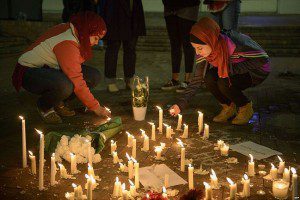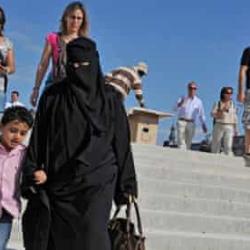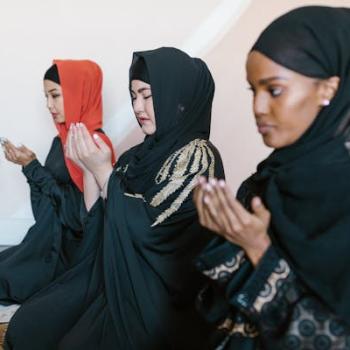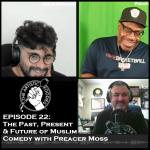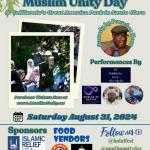By now, most of us know that last Tuesday evening, three young Muslims were shot and killed, execution style, in their home in Chapel Hill, North Carolina by a white male.
In the immediate hours after the murders, the nation’s mass media largely ignored this horrific crime. People rushed to Twitter and other social media outlets to spread the word and call out the media’s hypocrisy. Had it been a Muslim man executing three young white students, the incident would’ve been breaking news, complete with a New York Times phone alert. Not surprisingly there was no mass media attention till noon on Wednesday, when the hashtag #chapelhillshooting finally forced some to start noticing.
As expected there were also plenty of Americans who tweeted more hateful messages about Muslims, trying to belittle these voices as if they didn’t matter. Or they merely implied that Muslims were really making a big deal out of nothing.
But why exactly was there such a mass outrage from the Muslim community about this shooting in the first place? Does it speak of a more intolerant American landscape towards American Muslims? Many believe that over the last several years, there has been a steady rise of Islamophobia in this country, which has led to very precarious living conditions for Muslim Americans. Islamophobia has become systemic. Consider the following:
Islamophobia is being funneled for the top down and instigated by our very own politicians. In recent years, several state legislatures (e.g. – Florida, North Carolina, Oklahoma) have introduced anti-Muslim legislation. Rep. Peter King (R-NY), former Rep. Michele Bachmann (R-Minn.), Rep. Jody Hice (R-GA), among others, have stoked anti-Muslim anxiety among their constituents.
Last month Texas State Rep. Molly White, (R-Belton) skipped the Texas Muslim Capitol Day celebrations. Then, in a post on Facebook she asked her staff “to ask representatives from the Muslim community to renounce Islamic terrorist groups and publicly announce allegiance to America (and the Israeli flag in her office) and “our laws,” adding, “We will see how long they stay in my office.” While the most offensive comments have come from the right, one cannot pardon Democratic politicians if they don’t take a stance against such hateful rhetoric.
Then again, when politicians do try to discuss the nuances of religion and have a civil conversation about separating an entire religion from individuals, as President Obama did at the National Prayer Breakfast two weeks back, there’s relentless questioning of the words used verses addressing the problem at hand. At the prayer breakfast, the president also spoke about how no religion is immune to violence. He then cited the Crusades as an example of Christianity’s dark past.
Jim Gilmore former Republican Governor of Virginia said that the President’s remarks were “the most offensive” he has ever heard a president make in his lifetime. FOX News also pounced on Obama. FOX Host Eric Bolling said that all other religions asides from Islam have had zero “killings in the name of religion.” Commentator Ben Carson called the President’s comments “irrelevant.” Fox News isn’t alone in sustaining this fear mongering environment among the American public. Anchors on CNN have also enticed Islamophobic fear, as seen here in this interview with Reza Aslan last year.
Then we have the general portrayal of Muslims and Muslim news in the media. As the Charlie Hebdo incident developed, The New York Times rightly sent out a breaking news push notification. Yet there was no such notification for the school shooting in Pakistan last December, where 145 people, mostly children, died, nor for the most recent Boko Haram massacre in Nigeria, which killed at least 150. And there was certainly no breaking news notification for the Chapel Hill shootings on Tuesday. The media was eerily silent on these news pieces as compared to Charlie Hebdo.
In addition to gaps in news media, there are elements of entertainment media perpetuating this notion of Muslims being evil and bad. Take for example the popular show Homeland or movies like American Sniper or Zero Dark Thirty. Shows and movies like these further propagate the ignorant images about Muslims and present an argument of the American hero against the Muslim enemy. Repeated messaging – whether direct or subliminal – has an undeniable impact on “otherizing” of an entire population.
Muslims do have advocates in the media, voices who give fair and important coverage to Muslims – Chris Rock, Ben Affleck, Jon Stewart, Russell Simmons to name a few. However, their voices and our voices are increasingly being drowned out by the ignorant messaging politicians and media send to the American people. When more than 60 percent of Americans say they do not personally know a Muslim, one can only infer that their knowledge of who a Muslim is and what a Muslim stands for comes from the media they watch and the politicians they listen to.
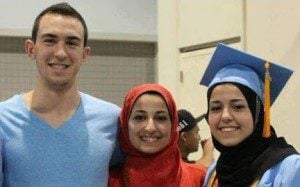
In response to the shootings, the attorney for Craig Hicks, the man who turned himself in for the killings, stated that, “unfortunately these victims were there at the wrong time at the wrong place.” At the time of the murders, the victims were all inside their homes. Is this what Muslims in America have to learn to adapt to, that being at home could be being in the wrong place?
Three young Americans – Deah Shaddy Barakat, 23; Yusor Mohammad, 21; and Razan Mohammad Abu-Salha, 19 – were murdered in North Carolina, and it is an outrage. They were Americans who were committed to America and to serving humanity, as evidenced from the mounds of inspiring stories coming forth about them.
Yet the responses we saw is part of a pattern in America that we Muslims are so accustomed to seeing – when a person who calls themself a Muslim kills in the name of religion, they are deemed as terrorists. In that immediate instance, all Muslims are lumped together in a homogenous way to separate us from “Americans”. Yet when an American commits three unspeakable murders there is a rush to justify his acts – it’s a “parking dispute.” When any other person does the killing, “terrorist” is not used.
There is a systematic dismissal of Muslim voices, concerns and portrayal in American society. Where is the media in their breathless coverage of this heinous act? Where are the politicians who are so quick to judge our patriotism? It’s time to recognize that Islamophobic rhetoric has become socially acceptable, and it must stop. Everyday Muslims are doing their part, displaying Islamic values and ethics of kindness, generosity and compassion. It’s time these everyday acts and voices are recognized. American Muslims are just as much American as every other American.
Sadaf Sajwani is a Director of Partnerships at an education non-profit in New York.

